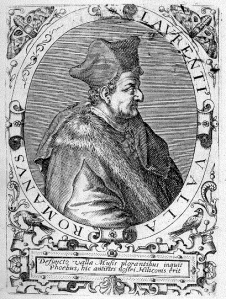 Since the entrance of the humanities into the digital world, philology has been changing, and in my opinion the most significant shift involves scholars’ aims and ways of thinking.
Since the entrance of the humanities into the digital world, philology has been changing, and in my opinion the most significant shift involves scholars’ aims and ways of thinking.
In the past, choices had to be made as to whether to edit and publish a version of a manuscript, even an error-ridden one, based on one single version, or to try to produce the ‘best’ edition using many different versions, when either choice necessitated the inclusion of footnotes to accommodate the extra material. In the current technological age, digital tools allow us to move beyond these kinds of issues. One of the best examples of this concept is John Bryant’s fluid text edition of Herman Melville’s Typee. The aim is no longer, or not necessarily, to produce definitive, static, scholarly editions restricted by the boundaries of print. Culture is becoming more democratic than ever, and scholars are sharing knowledge and ideas via many different platforms, allowing potentially every internet user to share in, and collaborate with these ideas. An example of this collaborative culture may be seen in the Transcribe Bentham project, promoted by UCL.
I come from a background of philology and literary critique, and in the coming months I intend to explore how philologists can, and have already, placed themselves within this framework and study these new interactive and democratic ways of producing and sharing knowledge. Moreover, I propose to contribute by working on archival material and thinking about engaging ways to share my findings. The project I am interested in is the creation of a portrait of Tilly Fleischmann, who was a musician, teacher, and writer. She was born in Cork and studied piano in Munich with two students of Franz Liszt. Some information about her can be found here. I am fascinated by her character, as she is a figure who, in a certain sense, belongs to the “female genealogy” we need in the world of today– to use the terminology of the feminist scholar Luce Irigaray. You can follow how my research is progressing and where my readings are bringing me on my website, which bares the appropriate name of Wibbly wobbly literary stuff.
My interest in these new, digital ways of sharing knowledge prompted me to apply for an internship with the CELT project. Currently I am working on a brief report written by Lorenzo Magalotti regarding the journey he made to Ireland as entourage for Cosimo III de’ Medici in 1669. I am proof-reading the original version, from the Italian Renaissance, taking care of the XML markup, and translating and summarizing the introduction. These are simple tasks, but the work is pleasing and interesting, and above all, the idea of bringing a contribution in the sharing of culture, even if in a small part, satisfies me greatly.
Sources
2000, University College London-Gower Street- London- WC1E 6BT Tel: +4420 7679. “UCL Transcribe Bentham.” N.p., n.d. Web. 8 Jan. 2015.
Burke, Carolyn, Naomi Schor, and Margaret Whitford. Engaging with Irigaray: Feminist Philosophy and Modern European Thought. Columbia University Press, 1994. Print.
Fleischmann, Ruth. “TILLY FLEISCHMANN NÉE SWERTZ (1882-1967).” N.p., n.d. Web. 1 Aug. 2015.
Melville, Herman. “Herman Melville’s ‘Typee’ : A Fluid-Text Edition.” Text. N.p., n.d. Web. 8 Jan. 2015.
Image source
de, Boissard, Jean-Jacques; Bry, Theodor. Lorenzo Valla, Humanist. N.p., [object HTMLTableCellElement]. Wikimedia Commons. Web. 8 Jan. 2015.
